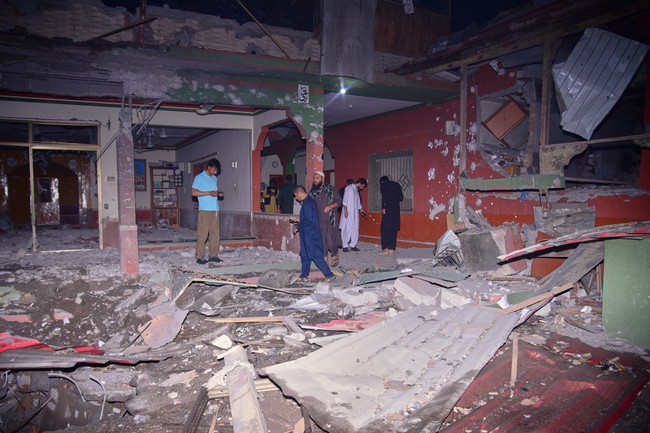
PJ Media’s Scott Pinsker covered the Indian retaliation for the Kashmir terrorist attack on Tuesday. It was a heavy strike, hitting nine “terrorist” targets inside Pakistan and the disputed Kashmir province, according to the Indian military.
Pakistan says 26 people were killed and 46 injured in the strikes, while India says that 10 people were killed in Pakistan’s artillery strikes across the border.
Now comes the hard part. Pakistan has sworn it will retaliate for the Indian attack. It will be crucial that the retaliation be precisely calibrated. In a tit-for-tat situation with two nations poised for all-out war, any miscalculation in Pakistan’s response could lead to the fourth war since partition between the two rivals.
“There will be a Pakistan retaliation. The question is whether the reaction will be well thought out. If they attack military establishments, India will retaliate and the military action will go on,” said Manoj Joshi, fellow at the Observer Research Foundation.
That both sides have been lobbing casual nuclear threats back and forth doesn’t breed confidence that a nuclear exchange can be avoided. But the question remains: Why the hair trigger? Why is there a fear that Pakistan and India will allow the situation to escalate out of control and lead to a nuclear conflict?
Pakistan is a third-world, unstable autocracy that, at times, resembles a military dictatorship. The military’s influence on politics and foreign policy makes the Pakistani civilian government beholden to whatever the military decides to do when it comes to external threats.
Related: The U.S. and the Houthis Have Agreed to a Ceasefire. Will the Houthis Keep It?
The Pakistani street is extremely volatile. The Indian street is less so, but because India is a functioning democracy, the government is more sensitive to the voice of the people. In the matter of Kashmir and conflict between the two nations, there is enormous pride involved in the military of both nations, as well as religious hatreds going back many centuries. It’s an incendiary mix that makes the India-Pakistan conflict so unpredictable. Throw in nuclear weapons, and there is much to worry about.
“The escalation ladder is steep. And, as in the past, captive local media and jingoistic politicians across the spectrum are baying for blood,” says Shuja Nawaz, a distinguished fellow at the Atlantic Council’s South Asia Center.
He added, “The world doesn’t need another flashpoint where both sides possess nuclear weapons, and standoff air and drone attacks could easily lead to the use of heavier weapons.”
Srinath Raghavan, a Delhi-based historian, told the BBC, “What’s striking this time is the expansion of India’s targets beyond past patterns.” Previously, India had largely struck targets inside Kashmir. By any measure, the targets India hit could be considered an escalation.
“This time, India has hit into Pakistan’s Punjab, across the International Border, targeting terrorist infrastructure, headquarters, and known locations in Bahawalpur and Muridke linked to Lashkar-e-Taiba. They’ve also struck Jaish-e-Mohammed and Hizbul Mujahideen assets. This suggests a broader, more geographically expansive response, signalling that multiple groups are now in India’s crosshairs – and sending a wider message,” he says.
The India-Pakistan International Border is the officially recognised boundary separating the two countries, stretching from Gujarat to Jammu.
Ajay Bisaria, a former Indian high commissioner to Pakistan, told the BBC that what India did was a “Balakot plus response meant to establish deterrence, targeting known terrorist hubs, but accompanied by a strong de-escalatory message”.
Will Pakistan heed the de-escalatory message? The key time will be after Pakistan’s retaliatory strike and the diplomacy that’s sure to follow. If both sides take a “cooling off” period, the crisis will pass. But that’s not guaranteed. And with the street on both sides calling for Hindu and Muslim blood, the uncertainty makes this a particularly dangerous conflict.
Help PJ Media continue to tell the truth about the Trump administration’s accomplishments as we continue to usher in the Golden Era of America. Join PJ Media VIP and use promo code FIGHT to get 60% off your membership.












